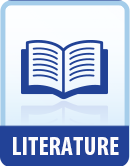
|
| Name: _________________________ | Period: ___________________ |
This test consists of 5 short answer questions, 10 short essay questions, and 1 (of 3) essay topics.
Short Answer Questions
1. By which of the following were the narrator's "feet, bound by frost” (ll. 9-10)?
2. In line 29, “proud and puffed up with wine, what I, weary,” how many relatively stressed / emphasized syllables are present?
3. In line 29, the description “proud and puffed up with wine” offers an example of which of the following?
4. Of which of the following is narrator deprived when he “wretched with care, dwelt all winter / on the ice-cold sea in the paths of exile" (ll. 13-16)?
5. In line 17, “hung with icicles of frost while hail flew in showers,” how many relatively stressed / emphasized syllables are present?
Short Essay Questions
1. The narrator comments that “they compel me now, / my heart-thoughts, to try for myself / the high seas, the tossing salt streams; / my heart’s desire urges my spirit / time and again to travel, so that I might seek / far from here a foreign land” (ll. 33-38). What tone is conveyed in the passage?
2. The poem opens with the narrator saying “I sing a true song of myself, / tell of my journeys” (ll. 1-2). What rhetorical appeal/s does the narrator make in doing so?
3. The second sentence of the poem reads "Pinched with cold / were my feet, bound by frost / in cold fetters, while cares seethed / hot around my heart, hunger tore from within / my sea-weary mind" (ll. 8-12). Three things are put into juxtaposition. What are they, and what effect does the juxtaposition have?
4. Consider the kenning for hail, “coldest of grains” (l. 33). How does the kenning construct meaning?
5. The narrator states that “The night-shadow darkened; snow came from the north, / frost bound the ground, hail fell on earth, / coldest of grains” (ll. 31-33). What rhetorical appeal/s does the narrator make in the statement?
6. The narrator remarks that “he who has tasted life’s joy in towns, / suffered few sad journeys, scarcely believes, / proud and puffed up with wine, what I, weary, / have often had to endure in my suffering” (ll. 27-30). What rhetorical appeal/s does the narrator make in doing so?
7. Consider the symbolism of the swan-song the narrator mentions (ll. 19-20). What rhetorical appeal/s does the narrator make in evoking it?
8. The narrator remarks that “no sheltering family / could bring consolation to my desolate soul” (ll. 25-26). What rhetorical appeal/s does the narrator make in doing so?
9. Consider the symbolism of the seabirds the narrator catalogs (ll. 20-23). What rhetorical appeal/s does the narrator make in evoking it?
10. The narrator remarks that “he who has tasted life’s joy in towns, / suffered few sad journeys, scarcely believes, / proud and puffed up with wine, what I, weary, / have often had to endure in my suffering” (ll. 27-30). What tone is conveyed in the passage?
Essay Topics
Write an essay for ONE of the following topics:
Essay Topic 1
Consider the central message of "The Seafarer." Argue how the message and / or its support is incorrect; identify the weaknesses in the poem's central message and / or the way it presents the message, articulating why the identified weaknesses are, in fact, weaknesses.
Essay Topic 2
Liuzza translates the Old English “forþon” as “and so” throughout his rendering, emphasizing the uncertainty of relationships between ideas in it (19n4). What effects does such ambiguity have for CURRENT readers (that is, those hearing / reading the text today)? How does it enact those effects?
Essay Topic 3
Consider the present physical context of “The Seafarer” as encountered in this lesson plan—notably in a translation as part of an anthology. Multiple influences will have exerted themselves on the text, not only those leading up to the composition of the original, but also concerns of translation and editing. What effects do the more modern influences on the text—those of the translator and the editor/s—have on your interpretation of the text? How do they exert those effects?
|
This section contains 1,087 words (approx. 4 pages at 300 words per page) |

|




